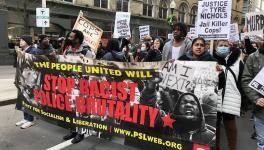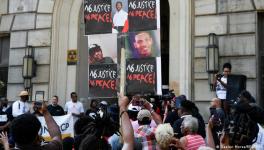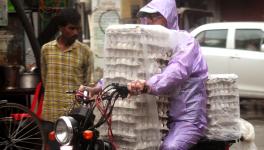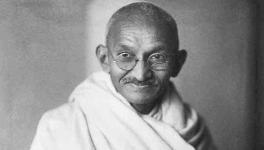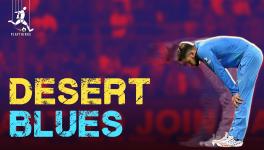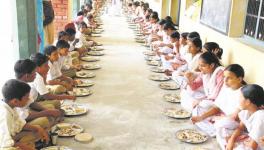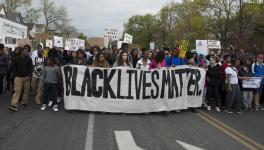What Democracies Can Learn from Celebrity Conscience
One of the most heart-warming stories to come out of months blighted by the Covid-19 pandemic worldwide, amidst many, many tales of Good Samaritans, was the one about 22-year-old Manchester United forward Marcus Rashford’s intervention to help children in the United Kingdom get school meals during the summer holidays. Now, he’s trying to build on his success off the field.
Here is how it played out. In June, the UK government was poised to discontinue free school meals as term time came close to giving over. It was following procedure, without reference to the massive lay-offs and increased economic hardships caused by the Covid-19 pandemic.
That was when Rashford stepped in. In an open letter to all MPs on 15 June he made an impassioned plea for the continuation of meals, for the year, knowing, like the government did as well, that shutting down the meals scheme alongside the academic year, would mean that many children would go hungry in the summer.
As Rashford’s letter made clear, he had endured a difficult childhood and his ascent to the heights of footballing achievement was made possible only by his mother’s determination to help him grab every opportunity to come his way, the help of community initiatives—“food banks and soup kitchens” which “were not alien” to him—and government schemes. “Understand,” he wrote, “without the kindness and generosity of the community I had around me, there wouldn’t be the Marcus Rashford you see today: a 22-year old Black man lucky enough to make a career playing a game I love.”
The government’s initial reaction to Rashford’s letter was dismissive. It not only turned down with scarcely a second thought the striker’s appeal to extend the free-meal scheme into the year-end vacation, but also fielded ministers to defend its position. Embarrassingly, one Cabinet minister mocked Rashford’s plea, asking him to think about all those people whose water had been turned off.
Within 24 hours, however, the government announced, on 16 June, that it had decided to extend the meals scheme into the break, thereby feeding 1.3 million children the summer. While Rashford reacted on Twitter with a message of solidarity—“Just look at what we can do when we come together, THIS is England 2020”—the government, led by Prime Minister Boris Johnson, tried to pass off its U-turn as its own considered policy.
In fact, Johnson tried to obfuscate, claiming, after executing the about turn, that he had come to know of Rashford’s letter on 16 June after taking the decision to overturn the government’s forcefully stated policy. Its rejection of Rashford’s plea remained on the record though, however, even if one of Johnson’s spokespersons was to say later, “The prime minister welcomes Marcus Rashford’s contribution to the debate around poverty, and respects the fact that he has been using his profile as a sportsman to highlight important issues.”
Johnson was justly pilloried in the media and by the public for its disingenuous attempt to claim credit. But the issue raises some interesting comparative questions we shall return to.
Having won this battle and having been named one of the eight nominees for the “Young Player of the Year” in England for the 2019-20 season, Rashford has now proceeded to take further action to meet the problem of hunger in the UK, focusing on children. He has formed a task force bringing together various food companies and not-for-profits to ensure that three objectives enshrined in the recently completed National Food Strategy commissioned by the government are met, willy-nilly. They are: the expansion of free school meals to every child whose family is on universal credit; an expansion of holiday food to all children on free school meals; and a significant boost to the value of healthy start vouchers for families with young children.
Rashford wrote again to all MPs on 1 September asking for the implementation of measures to achieve these objectives. Schools Minister Nick Gibbs and other Tory leaders have now lined up unreservedly behind his new initiative as have opposition Labour leaders, including deputy Labour leader Angela Rayner and shadow justice secretary David Lammy.
There are two points that could well be worth belabouring in this context. The first has to do with the way governments function. Given the UK’s long tradition of parliamentary democracy, the process of governance has, in some ways, historically been more engaged with public opinion on an ongoing basis than in many other democratic countries. Over the past few decades, however, this tradition has been substantially eroded. The current dispensation, in line with populist/authoritarian ones elsewhere, is notoriously inclined towards opacity, arbitrariness and unconstitutionality.
Johnson and his Cabinet were forced, nevertheless, to respond to Rashford’s letter and subsequent initiative. In the first instance, their hands were forced by rumblings of revolt in the Tory backbenches, with many MPs feeling (or fearing) that shrugging Rashford off would earn the government and the party considerable opprobrium. Much of that had, it is true, to do with the footballer’s celebrity and star status.
Despite the U-turn, the UK government came in for some stick. It must be noted, however, that there must be something hardwired into the system that forced the government to backtrack. It is inconceivable that such a thing could have happened in what passes for democracy in India, for instance. And this could be said of many other “democracies” throughout the world, especially regimes that qualify as democracies more in the willful trampling than the observance. Behind India would line up, without question, Belarus, Hungary, Russia and Turkey, and, increasingly, the United States, not to mention Brazil, Pakistan, the Philippines and a slew of regimes in Africa and South America.
The second thing to be noted here is what we can call celebrity conscience. Celebrities elsewhere in the world, as also other stars in the UK, have done their fair share during the Covid-19 pandemic and at other times, to come to the aid of those less unfortunate, as Rashford has by volunteering with the charities FareShare and Evelyn Community Store. Help is offered both as contributions in cash and kind, and, less often, in time and effort.
But it is only rarely that celebrities, with their immense social power and resources, confront their governments, however such confrontation may be framed. Make no mistake, despite the non-confrontational idiom Rashford used, he was taking on the government and the establishment, because he saw clearly, in his words, that the “system was not built for families like mine to succeed, regardless of how hard my mum worked”.
In many “democracies”, including India’s, attempts to protest discrimination or work creatively for the implementation of concrete steps to ameliorate distress are rare, often because even those with heft fear reprisals. Take for instance, in closing, the Black Lives Matter movement. In 2016, US soccer star Colin Kaepernick sacrificed his high-profile career by either sitting or kneeling—“taking the knee”—while the US national anthem was being played before games to protest police brutality and racism. In 2017, President Donald trump tweeted vituperatively against this practice, which led to Kaepernick’s not being signed the following seasons by any team.
Three years later, in the wake of George Floyd’s murder and the recrudescence of the Black Lives Matter movement, sports in large swathes of the “White West” have become inextricably associated with taking the knee to protest exactly the things Kaepernick had protested against. The establishment that punished him, admitted their error, others chose not to go down that route at all.
Is it time for people in India who have social capital and power to spare to confront a communal and discriminatory regime by figuratively taking the knee to say “Minority Lives Matter” and “Make Poverty History”? You are not advised to hold your breath.
The author is a freelance journalist and researcher. The views are personal.
Get the latest reports & analysis with people's perspective on Protests, movements & deep analytical videos, discussions of the current affairs in your Telegram app. Subscribe to NewsClick's Telegram channel & get Real-Time updates on stories, as they get published on our website.










